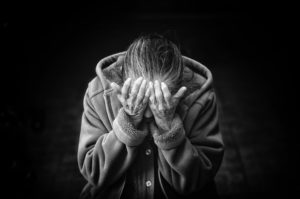by Jenny Rose | Jul 16, 2022 | Emotional Intelligence, Feelings, Happiness
Years ago, when I was seeking a divorce, my lawyer asked me one day in the middle of my frustration and fear regarding custody of my boys if I wanted to be right or I wanted to be free.
It was one of the best questions anyone had ever asked me, and I didn’t have to think about my answer.
“Free,” I said. In that moment, I gave up on my rather naïve ideas about justice and cooperation in the process of divorce. I stopped worrying about being right. I understood no one but me was interested in the best situation for the kids. I fought for as much freedom as I could get, not for myself, but for them.
The memory came vividly back to me when I read this article by Arthur Brooks from Big Think. The author describes an interaction with a successful but unhappy financier, who remarks she would rather be special than happy. Her definition of special has to do with professional success. Ordinary people, she says, can be happy. She wants to be more special than that.

Photo by Andrew Loke on Unsplash
I thought about that choice, and I wonder, are special or happy the only two choices? Is there some rule stating one can’t be special and happy?
Why do we believe we have to give up something to be happy?
I’ve written a series of posts about happiness, inspired by the work of Martin Seligman, PhD. I went back and reread those posts.
Can ordinary people be happy but extraordinary people can’t?
Are ordinary people happy?
Is ordinariness shameful? Is happiness a goal only for those who can’t be special in any way, a kind of booby prize?
I don’t believe happiness has anything to do with being ordinary, extraordinary (as defined by whom?) or somewhere in between. It’s a lot more complicated than that. I wonder if we’re losing our ability to distinguish between temporarily satisfying our addictions, expectations, and compulsions while numbing our pain and fear, and feeling true, enduring happiness.
Happiness, after all, is a state of being rather than a state of doing. To some degree we must allow it – give it time, space, and a safe place to exist. It’s not something to pursue or try to create. It’s already within us, somewhere.
(This creation of space, by the way, is a pillar of minimalism. If everything is important, nothing is. One discards until what’s truly important is revealed.)
I jotted down this statement: I’d rather be dutiful, loyal, responsible, a good parent/partner/daughter/sister, rich, powerful, in control, right or successful, than happy. I didn’t think hard about it. I have chosen everything on that list at one time or another in my life. I haven’t chosen happiness or seen it as a choice, and I’ve been unconscious of my belief that happiness can’t coexist with my standards of integrity.
Happiness just doesn’t seem like a worthy goal to me. It’s not culturally sanctioned. Ambition, power, wealth – those are worthy goals. Those are things that matter. Obviously (so obvious it goes without saying directly), those are the roads to happiness. One can be happy, but it must be earned, and happiness is not the goal, just a nice bonus. The real goal is productivity. The shadow side of productivity is consumption.
But productivity is a moving goalpost, and it doesn’t make us happy.
It occurs to me we talk about happiness or unhappiness as a blanket state of being, but it’s really more like Swiss cheese. I feel chronically unhappy about some aspects of my life, and chronically angry about others. Yet every day I also feel periods of happiness when I allow it and take the time to be present in the moment.

When I allow myself to play in the garden, I feel happy.
When I allow myself to settle down with a good book, I feel happy.
When I allow myself to be creative, I feel happy.
When I allow myself to be who I am, I feel happy.
Gardening, reading, being creative, and living authentically take time, intention, discipline, and energy. Discipline. Can you believe it? It takes discipline to remember I’m not a human doing, but a human being. My intrinsic worth as a being isn’t tied to productivity or consumption. The treadmill of productivity is easy. Stepping off and relaxing takes discipline. And that’s not only me.
The nature of addiction (physical and mental dependence) in any form is that it gradually pushes everything else out of our lives. Our addiction consumes our time, energy and money. Anything not in service to the addiction is discarded, including relationships, health, free time, quiet time, and creativity. Our addiction becomes our primary relationship and those around us quickly learn we’re not available for anyone or anything else.
Workaholism and perfectionism are addictions, along with productivity, toxic positivity, substance abuse, eating disorders, over-exercising, and sex addictions.
Happiness is power. That which takes us away from our happiness is disempowering.
Why do we live in, perpetuate, and enable a culture that relentlessly and brutally disconnects us from happiness?
That’s easy. Our individual happiness does not benefit capitalism, because happiness can’t be bought or sold. Capitalism benefits from an unhappy population brainwashed into believing productivity and consumption will make us happy. Who benefits from violence, division, hatred, manipulating our fear, restriction of choice, and disconnecting us from the simple pleasure of happiness?
Those currently in power and determined to stay that way, both governmental and corporate.
Who allows and enables that power-over stranglehold?
We do.
But we could change our minds.

Photo by Cristian Newman on Unsplash
by Jenny Rose | Jun 18, 2022 | Emotional Intelligence, Feelings
Food for thought from Seth Godin: Productivity is not measured in drama.

Photo by roya ann miller on Unsplash
Sometimes life seems to me like a giant factory. The owners are busy manufacturing fear and drama day and night, making money hand over fist. We the people sit in little cubicles, brainwashed and manipulated by the factory owners, responding to fear and drama stimuli for all we’re worth (and much more than we’re worth, monetarily speaking) and providing a gigantic, endless river of profit to the few at the top. After a few months in the factory, we’re promoted; we’ve learned to create fear and drama all by ourselves! Now we can model good business practice for the newbies.
Success!
For someone.
Fear and drama. Two top money-makers. Naturally, a capitalist culture would be constructed to relentlessly promote them, and any vehicle for increasing fear and drama would have enormous lucrative potential. Hence, staggering financial power and influence in the form of social media, conspiracy theory centers and advertising.
Information (facts) and critical thinking mitigate fear, so let’s demonize them and weaken public education so such heretical things are not taught.
Breaking our addiction to stuff and stimulation, instant gratification and validation, might allow us to realize how hollow and expensive those addictions are, so let’s not give people a single second in which to be tranquil and quiet.
Changing our belief that having and doing are more important than being, that doing more faster will lead to greater productivity and thus more money (with which we can buy more) will hurt the economy. Let’s make that unpatriotic, unpopular, and offensive.

Photo by Heidi Sandstrom. on Unsplash
Let’s emphasize and support division, outrage, hatred, bigotry, procrastination, ignorance, catastrophizing, gaslighting, urgency, “alternative facts”, and disempowerment. Let’s prioritize making a profit.
Let’s train the culture to demand drama, and richly reward those who disseminate the most drama to the public. Let’s give those people power, authority, awards, and our money. Let’s give them our time and attention, our applause, loyalty, and praise. They entertain us. They tell us what we want to hear. They will be our saviors in a terrifying world. Without them, we’ll lose everything. (Starting with our guns.)
Manufactured drama. Manufactured fear. As though life doesn’t have enough organically grown drama and fear.
But one can never have enough money, right? And fear and drama are sound investments. Better than blue chip stocks, because they perform best in the worst of times.
At some point, we hitched drama onto productivity and conflated them. Godin reminds us productivity and drama are not the same or even related, unless it’s an inverse relationship.
We don’t have to choose crisis. We can build slack into our lives, quiet, unplugged time, time away from a screen. We don’t have to feed drama or get involved with it. We certainly don’t have to pass it on. We don’t have to attach to fear. We can unhook from fearful media, take our time and attention away from it.
Fear and drama don’t help us effectively manage our lives or make positive contributions. They don’t make us more humane or better problem solvers. They don’t help us find true love or good health. They’re neither creative nor connecting. Urgency is not high-quality fuel for life, and it doesn’t help us make empowered choices.
If we want to be productive, we need to disengage from fear and drama.

Photo by Annie Spratt on Unsplash
by Jenny Rose | Jun 11, 2022 | Power
Can you walk away? Will you choose to?

Photo by Dan Gold on Unsplash
This piece from Leo Babauta hit my Inbox recently, and I’ve been turning it over in my mind.
Before I go any further, I need a moment to sit here and shudder. Because walking away is hard. It’s devastating. It’s an atomic bomb.
At least it’s felt that way when I’ve done it in my personal life, probably because I’ve waited, dithering, denying, distracting, hanging on and trying harder, so long for things to change. For me to change. For the other person to change. For divine intervention. For some event or person to rescue me.
By the time I do walk away I’m utterly exhausted and used up, and I hate myself far more than those affected by my walking away, though they, of course, don’t understand that. The relief inherent in walking away, the freedom, the reclamation of personal power, have only made me hate myself more.
Babauta’s article doesn’t start with the interpersonal stuff, though. He comes at it from a minimalist perspective. Can you walk away from an unhappy job? From a new car? From a deal or negotiation? From a tempting but unethical situation in which you might gain? From a new gadget or toy you really want but don’t need and can’t afford? From being too busy, too noisy, too tired, too stimulated?
Can you walk away from what the neighbors think, or your family? Can you walk away from the belief you need any particular person in your life to be happy? Can you walk away from your hopes and the beautiful dream you know is never coming true? Can you walk away from a toxic situation you’re deeply invested in? Can you walk away from the things and/or people destroying you?

Photo by Ian Espinosa on Unsplash
If you can’t walk, can you crawl away? On your belly, clawing at the ground, sobbing, naked and alone, can you crawl away?
It’s more than that, though. Will you?
Most of us can walk away if we have to. Many of us have had to and have done it. But who hasn’t felt stuck, unable to walk away, no matter how dark and dirty our fantasies are of leaving it all behind?
(Come on, I know you’ve had that fantasy at some time or another. Get in the car and drive until … until you’ve reached the edge of the world, of your life. Until you’ve run out of money or gas. Until you hit the ocean. Until you can stop.
Or go out the front door and start walking without looking back. Disappear. Vanish like a drop of water in the desert. Become nameless, faceless, rootless, homeless.)
But sometimes we feel stuck. Forever. Or what might as well be forever, because in this moment we’re so tired, so drained, so empty, there’s no comfort in the thought that things will change someday. One day.
One day is too far ahead. We’re not sure how to get through this day. But we have to. And the day after that. And the day after that. We made promises. We have responsibilities, loyalties, duties to others. We’re the keystone, the essential piece, the glue holding it together. It depends on us. If we’re not there … what? What would happen? Would everybody die? Would their lives be ruined? Would the sky fall?
Would they stop loving us?
That’s the worst fear, isn’t it? They’ll stop loving us. We love them and we have to walk away and then they’ll stop loving us. How can anyone love us when we’ve walked away? How can we love ourselves? How can anyone ever understand?
Does love require we allow ourselves to be destroyed? Are we supposed to love others more than ourselves?
Or are we allowed to walk away if we must to save our own lives? But what if no one believes us?
(For God’s sake, stop whining! Stop making such a big deal out of everything! You’re so dramatic!)
The terrible, inescapable truth about walking away is if we can’t do it, we’ve given away part of our power. If we choose to do it and reclaim our power, the price can bankrupt us financially, mentally, and emotionally.
On the other hand, sometimes the simple act of walking away sets us free in extraordinary, joyful ways we can’t even imagine.
Sometimes (perhaps hardest of all) we face annihilating consequences and experience freedom.
Can I walk away?
Will I choose to?

By Marianna Smiley on Unsplash
by Jenny Rose | Apr 16, 2022 | A Flourishing Woman, The Journey
In the online Red Cross Lifeguard Course, there’s a segment titled “When Things Don’t Go As Planned.” Every time I come across it, I smile.

Photo by NeONBRAND on Unsplash
Yes, indeedy. Because things often don’t go as planned.
Learning, in a real or virtual classroom, from text or videos or slideshows or YouTube, is necessarily simplified. The situations are controlled. Even the blood looks like cherry-flavored candy.
As a blogger, I ruminate, explore, define, proceed logically, and research. I’ve touched on so many different topics over the years here on Harvesting Stones. I’ve examined needs and boundaries, reciprocity and connection, contribution and authenticity.
However, this kind of intellectual exercise, learning at a remove, is not where the real mastery is.
The mastery comes when we put it all into action in real life. And real life is unbelievably messy. Real life is a loose cannon on a rolling deck. Real life does not go as planned.
We are occasionally plunged into chaos, into complicated experiences involving a lot of feelings and requiring all our skills. Our predictable routines and schedules turn inside out. We are not able to care for ourselves or anybody else as usual. We become exhausted. Our personal demons crawl out of our subconscious attics and cellars and play with us. Our physical weaknesses take advantage of our stress. We lose track of our power. We lose track of ourselves.

Photo by Quino Al on Unsplash
I would avoid such times if I could. I believe most of us would. Few people enjoy living in a maelstrom. The thing is, the maelstrom holds gifts, insights and growth we would never realize if we always lived serene, well-controlled lives.
I’m writing this on Wednesday morning. A week ago today, less than 24 hours before closing on the house we’re selling and the house we’re buying, closing was cancelled. Well, “extended.” I’m not sure there’s a difference, but my hope is pretty frayed right now, so I’m inclined to be pessimistic.
I thought I had been living in chaos before that abrupt last-minute change of plans, but those far-off days seem like a cake walk compared to what the last seven days have been like for me.
When our lives fall apart in painful ways, part of the stress of it is the rest of the world goes right on without giving us space and time to process, remember our resilience, and get back on our feet. I still needed to figure out how to get the car in to get the studded snows changed. I still have bills to pay. I still have a job. I still need to search the stores for cat food. I still have family birthdays to remember. The bed still needs to be made, the dishes washed, the laundry done. I want to remain consistent in my writing.
Autoimmune disease is highly opportunistic. I have not had this amount of stress since I moved to Maine seven years ago, and within a few hours of the cancelled closings my back went into spasm, which means I need all the love, rest, and care I can give myself right now, in the middle of the shit show. My body would feel better if we could close and get this move over with. And I can’t possibly move with this level of pain.
Meanwhile, the world turns. I feel guilty about my struggle when I know people in Ukraine are losing their homes, lives, loved ones, and perhaps their country. I tell myself I’m being dramatic, I’m whining, I never deserved for things to work out in the first place, etc., etc.
I told you about the personal demons crawling out, right?
So what do we do during times like these? How do we get through them? How do I turn the concepts of letting go, courage, detachment from outcomes, and emotional intelligence into tools to help myself? It’s all so clear, logical, and neat on the page/screen. I believe every word I write. It’s all organized and categorized.
When things don’t go as planned, nothing is neat, organized, or categorized. We can’t think well. Our feelings sweep us from fear to fury to despair and back again.
In my old dance group, we used to say when you feel overwhelmed, dance small.
Dance. Small.
Dancing small is focusing on breathing in and out. It’s making small movements. It’s wrapping your arms around yourself, facing a wall or a corner, closing your eyes, and concentrating on the floor under your feet. It’s deliberately sinking into yourself and letting everything and everyone else go as best you can. It might be the healing release of tears.

Photo by Leon Liu on Unsplash
This strategy doesn’t make the chaos go away, but it does give us a small resting place within the chaos. It allows us to find and hold onto ourselves. It gives us a tiny bit of power. It allows a little space for rational thought, for us to remind ourselves of what’s true:
- Nothing stays the same; all things pass
- Things invariably work out somehow, some way
- There is always much to be grateful for
- We are allowed to have feelings about our experience, and they’re allowed to be messy
- We always have some choice
- None of it is personal
This week, though in many ways painful and difficult, has also provided me with valuable practical experience in using some of my newer skills. It’s given me a chance to stay in my own power, always a worthy practice. I’ve had an epiphany about a longstanding destructive pattern in my relationships which has emotionally freed me in significant ways. Paradoxically, the current chaos has brought me clarity.
I’ve also been touched and humbled by the support I’ve received from friends and other members of my community. I am not alone.
Most of all, it’s given me a chance to deal with my feelings. It occurs to me the word “stress” is misleading. I don’t need to deal with my stress. My feelings need attention. They need to be named, welcomed, fully experienced, and released, no matter if they’re in my head, heart, or back. Managing my feelings will take care of my stress and my physical discomfort.
By the time you read this, things will have changed. Perhaps we’ll have a new closing date. Perhaps I’ll have decided to make a different plan. Perhaps we’ll still be in limbo, but it will be a different day in limbo. Today, we’ve taken my car in to get the tires changed, so that’s something taken care of. At some point, the muscles in my back will unclench and I’ll move freely again and be able to resume exercise.
Meanwhile, frogs boom, chuckle, and peep in the pond. The birds are busy and the spring dawn chorus gladdens each morning. The phoebe has returned and hunts from the barn roof. Rain falls and the sun shines. The mud is gradually drying up. I will feed the cats, play with them, clean their boxes. I’ll go to work, teach swim lessons, wipe down the locker rooms, read the pool chemicals, guard lives, answer the phone. I’ll feed myself, drink cups of tea, rest, write, read, and sleep. Time will pass. Days will pass.
It will all pass, the things that go as planned, and the things that don’t.

Photo by henry fournier on Unsplash
by Jenny Rose | Apr 2, 2022 | A Flourishing Woman, The Journey
Unless the sky falls (again), we will be moving in less than a week. It’s hard to believe. In fact, it’s impossible to believe, but that’s okay. Today is real, and I know what I need to do right now. The future can take care of itself.
As I moved around the kitchen early this morning, feeding (and tripping over) the cats, making breakfast, heating water for tea, watching the sky lighten, it occurred to me the last seven years in this old farmhouse have taught me a magnificent lesson.

Maine Farmhouse and Barn
When I moved to Maine, I had a solid idea about what I was moving into, a whole set of expectations and dreams, none of which turned out to be real.
The loss of my fantasies was heartbreaking and took me years to process. During that time, I started this blog and later remodeled it, finished my first book, wrote my second, and began my third, started publishing my fiction serially on Substack, put everything I’ve learned about emotional intelligence into action, grew deep roots in my community, found a great job I love, and became part of a second family.
At the same time, I experienced disempowerment in terms of my living space and physical surroundings. Never before have I lived in a place where I had so little power to respond to my needs and preferences, and never have I been so overwhelmed with maintenance tasks I could not take care of.
Because of my emotional intelligence training, my disempowerment was visible to me, and I was able to turn towards what I did have power over, again and again, until it became second nature. It didn’t feel good, but it was invaluable practice in managing my own power, at recognizing my own power.
Always before in my life, I’ve had plans and projects, things I wanted to buy, walls I wanted to paint, the ability to rearrange furniture, make repairs, have new shelves built, and discard what was no longer useful. Such activity gave me a great deal of pleasure and was thoroughly distracting. It was never finished, so I stayed firmly focused on externals.
In this house, that distraction has been unavailable. To stand in my own power has been to stand still with myself, to work internally, to feel my feelings, create, stretch, grow, learn, explore. It’s been lonely. It’s been uncomfortable. It’s been transformative. It’s been internal, invisible, and has nothing to do with a shiny presentation.

Photo by Alex Iby on Unsplash
Most of us would acknowledge real change and healing come from the inside, not from the surface. But understanding that intellectually is not the same as spending years living it. I would never have voluntarily given up the power to manage my surroundings. When I realized it was happening I had a choice to make, and I chose to explore this new, unexpected territory.
That choice is one of the best I’ve ever made.
I have learned a dream home, a dream wardrobe, a dream body, a dream library, is not a life. What others see of me and my possessions and home is not me. My presentation has nothing to do with my state of health, presence, and groundedness.
Our new home is old, though not as old as this farm, and it needs some work. Sure, it needs new exterior paint and other cosmetic help, but that’s not where I’ll start. Those changes are fun and everyone can see and appreciate them, but the invisible, internal issues like plumbing, wiring, and insulation are what will really make a difference to my experience living there.
The looks of the new house are not what matters. It’s the life we create inside it that matters.
The color of my hair doesn’t matter. It’s what’s inside my head that matters.
The clothes I wear don’t matter. It’s the health and peace in my body that matter.
Attaining perfection (and perfect control) of my space is not what matters. It’s the ability to manage my thoughts and feelings, maintain integrity, and live well that matter.
In these last few days of packing, sorting, and endless tasks and details, at every step I’m thinking about what I learned and how grateful I am for the lesson. I didn’t choose to learn it. I wouldn’t have volunteered to learn it. I was forced into it, tricked into it, even.
But that’s not important. My life has consistently taken me exactly where I need to go, in spite of how much I whine and complain about some of the places I’ve been. Now, just ahead, is a whole new chapter.
I wonder what I will learn.
(Next weekend we’re moving, so you won’t see a post here from me. I’ll be back in two weeks!)

Photo by Michal Balog on Unsplash















